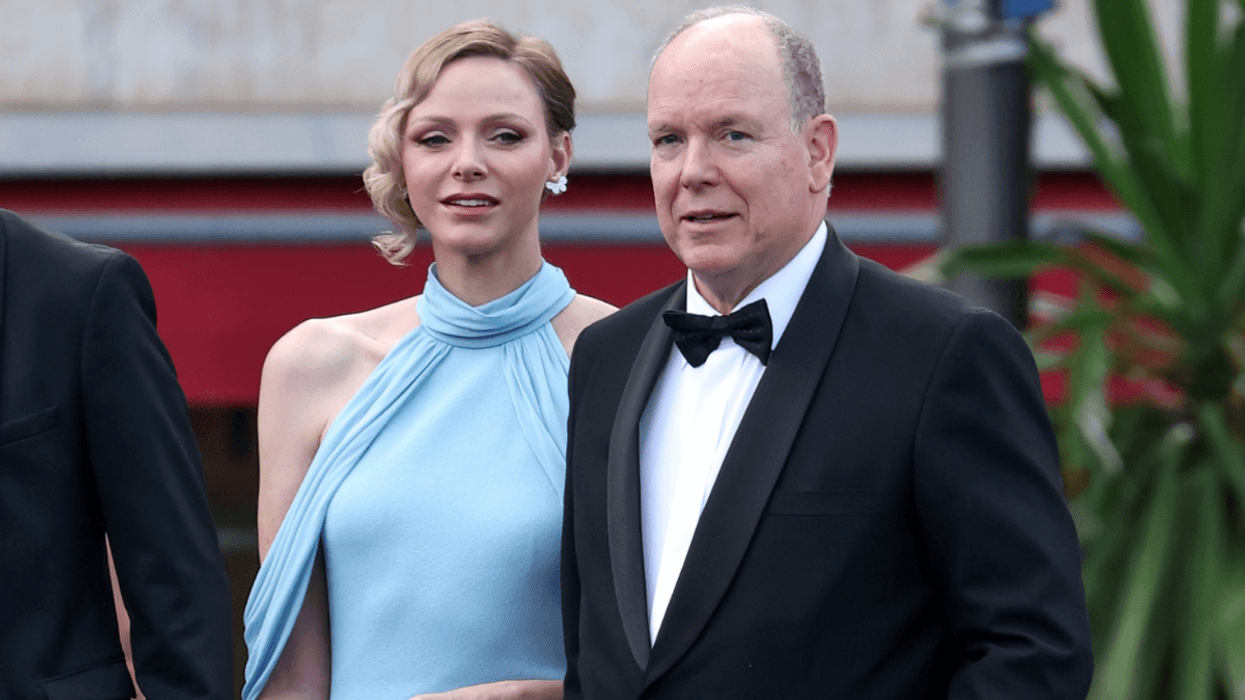Why is chess a sport? Banning trans women from playing chess is offensive to all women - Nigel Nelson
OPINION: GB News commentator Nigel Nelson has hit out at chess banning trans women from playing women's chess
Don't Miss
Most Read
It seems reasonable to ban trans women from taking part in female sporting events. World Athletics, World Aquatics and the International Cycling Union bar trans women from elite competition if they did not transition before puberty. Same goes for cricket.
And trans women are banned from international women’s netball no matter what medical interventions they may have had in the past. But it was really weird when the World Chess Federation jumped on the bandwagon and also did it.
Before we consider the topically contentious issue of what a woman is, the first question which comes to mind about chess is why it’s a sport.
I appreciate it’s a war game, but not one in which competitors are asked to pile out of trenches when the whistle blows to face a hail of machine-gun fire.
There’s not much physical prowess required to nudge 32 little pieces round a small board and the only exertion would be bending down to pick up one a player dropped.
Some say chess should be classified as a mind game, or an e-sport such as video gaming. But it qualifies because of its ranking system, tournaments, world championships and anti-cheating regulations. It also requires extreme mental endurance and grandmasters train like sprinters.
But here’s the clincher: it is recognised as a sport by the International Olympic Committee.Yet it still seems insulting to all women to ban trans women who are biological males. It implies the International Chess Federation thinks men are better at the game than women.
That prompted Labour’s Angela Eagle, joint winner of the 1976 British Girls’ Under-18 chess championship, to rage: “This ban is ridiculous and offensive to women. There is no physical advantage in chess unless you believe men are inherently more able to play than women.”
And, after all, equestrian events are unaffected by gender because it is the strength of the horse not the rider which matters. Women have always been able to compete against men.
The Federation said in August 2023, when the ban came into force, that it would review its decision in two years. So we should be hearing from them again this summer. The Supreme Court decided last week that biological sex cannot be changed.
It does not impose an obligation on organisations to do anything about it, but the legal path is now clear for single-sex groups to ban trans women if they wish.
And that’s about the sum of it, whatever convoluted interpretations we’ve heard since. If trans women enter changing rooms or lavs in the workplace reserved for biological women, a biological woman would have every right to tell bosses that is unacceptable and have the law behind her.
Bear in mind the case was only brought because Scots public boards with a 50/50 male/female membership policy allowed trans women into the female quota. It could have led to the ludicrous position in which the boards would be 100 per cent biological men.
Now ministers will have to consider whether this ruling changes more than that. But they should avoid tinkering too much with the 2004 Gender Recognition Act.
This requires applicants for a Gender Recognition Certificate to live in their acquired gender for two years and satisfy a panel of lawyers, doctors and psychologists they have a diagnosis of gender dysphoria.
That will allow them to change their gender on passports and birth certificates. No surgery is required which means that, officially if not legally, a woman can have a penis.
The tricky bit is going to be the NHS. Last year Tory Health Secretary Vicky Atkins thought she’d found a sensible way forward.
She decreed female hospital wards would only contain biological women patients, and only a biological woman doctor could carry out intimate examinations of biological women if that is what they requested.
Meanwhile trans women would get private rooms in NHS hospitals to show them the dignity and respect they deserve. Win-win all round.
Well, yes, if the NHS has the luxury of empty beds and spare rooms and beaming and gleaming doctors and nurses with light workloads refreshed after a good night’s sleep.
Hard-pressed emergency staff on their knees with exhaustion cannot be expected to know the biological sex of the mangled bodies passing through their A&E, and they’re not going to pause to do a leisurely chromosome test when lives are at stake.
They might even be tempted to bundle everyone into the same place and have done with it - male, female, trans, nonbinary, bigender, pangender and gender non-conforming.
We’d be back to mixed wards again…very mixed wards.





































